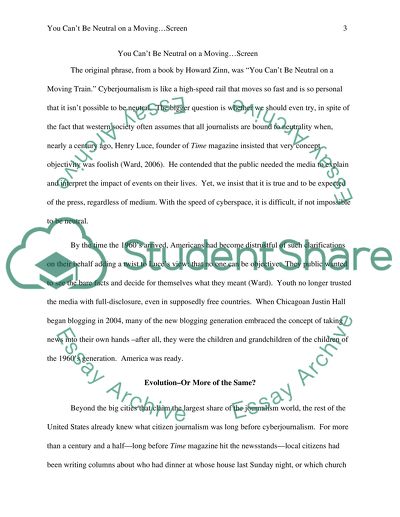Cite this document
(“Cyber Journalism (See detail) Research Paper Example | Topics and Well Written Essays - 2250 words”, n.d.)
Retrieved from https://studentshare.org/journalism-communication/1429495-cyber-journalism-see-detail
Retrieved from https://studentshare.org/journalism-communication/1429495-cyber-journalism-see-detail
(Cyber Journalism (See Detail) Research Paper Example | Topics and Well Written Essays - 2250 Words)
https://studentshare.org/journalism-communication/1429495-cyber-journalism-see-detail.
https://studentshare.org/journalism-communication/1429495-cyber-journalism-see-detail.
“Cyber Journalism (See Detail) Research Paper Example | Topics and Well Written Essays - 2250 Words”, n.d. https://studentshare.org/journalism-communication/1429495-cyber-journalism-see-detail.


